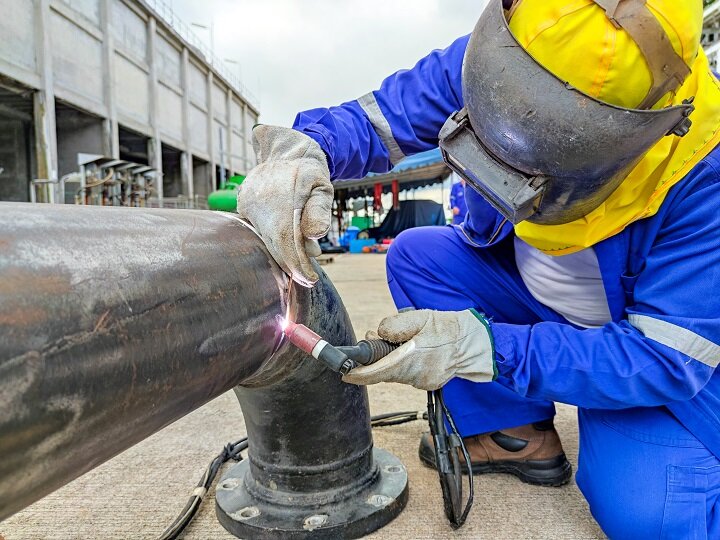The natural gas pipeline in the United States is both sophisticated and efficient, yet its performance is dependent on pipe construction and compressor stations. With its coast-to-coast compressor station network, pipelines, purifying procedures, and wellheads, this process provides energy to millions of end customers.
Understanding how it works, as well as the significance of natural gas pipe construction in properly-functioning compressor stations, might help us appreciate how much labor goes on beneath our feet.
Steel pipe fabricators collaborate with local governments, natural gas engineers, and experts. Only by working together will they be able to deliver safe natural gas through pipelines that are well-built, safe, ecologically friendly, and well-maintained.
Why is carbon steel transmission pipelines so important?
With advancements in technology and knowledge of how certain materials corrode and break down over time, the composition of natural gas pipe construction has altered.
Old and rotting pipes will be replaced by more durable and newer materials as manufacturing became more sophisticated and the ability to make strong and safe artificial materials improved.
Transmission pipelines: what are they?
Transmission pipes are typically carbon steel composed, which is an alloy of iron, manganese, and varying amounts of carbon, depending on the use. The majority of natural gas pipelines are transmission pipelines. These can transport gas over long distances, sometimes even across state boundaries. Since this is strong and relatively inexpensive, carbon steel is perfect for delivering gas into compressor stations.
Although there are many different varieties of carbon steel, low carbon steel or “mild steel” is the most common variety utilized in transmission pipes. Carbon content in this type of steel ranges from.04% to.3%.
Pipes are protected in what ways?
Coatings or wrappings are then applied to transmission pipelines to provide additional protection against:
- Soil
- Water
- Corrosion
- Leaks
PVC, Plastics, and acrylic are common corrosion-resistant materials used in these. Cathodic protection is also applied to the pipes. Carbon steel is a common steel type that is utilized in a wide range of industrial and home applications. Low carbon steel can be pressed into a thin sheet or poured into a strong structural beam.
These pipelines, if properly maintained, will last for many years without corroding or cracking. Constant inspections and rapid repairs following earthquakes or similar natural catastrophes help to keep steel robust and transmission pipelines safe.
Pipe fabrication’s importance
As the compressor works to push the gas to a greater pressure to boost it to the upcoming compressor station, there is frequently a lot of vibration, even tiny shock waves. As a result, pipe manufacture, welding, mending, and overall maintenance must all be done with care. Welders who construct and repair the compressor system’s pipes must be highly competent and experienced.
During pipe fabrication, they use more powerful machinery. These pipelines must withstand not only pressure but also heat, and they must account for natural gas. Because mercaptan might be added to the gas at a compressor station, it’s vital to factor that in as well. The compressor’s ability to function is ensured by meticulous pipe manufacturing. In the high-pressure gas atmosphere of the station, burst seams or botched repairs might be disastrous. The station has a better chance of running efficiently when qualified welders operate with robust materials.
See us at International Pipe for industry grade steel pipe. We are one of the leading steel pipe fabricators in OKC.

